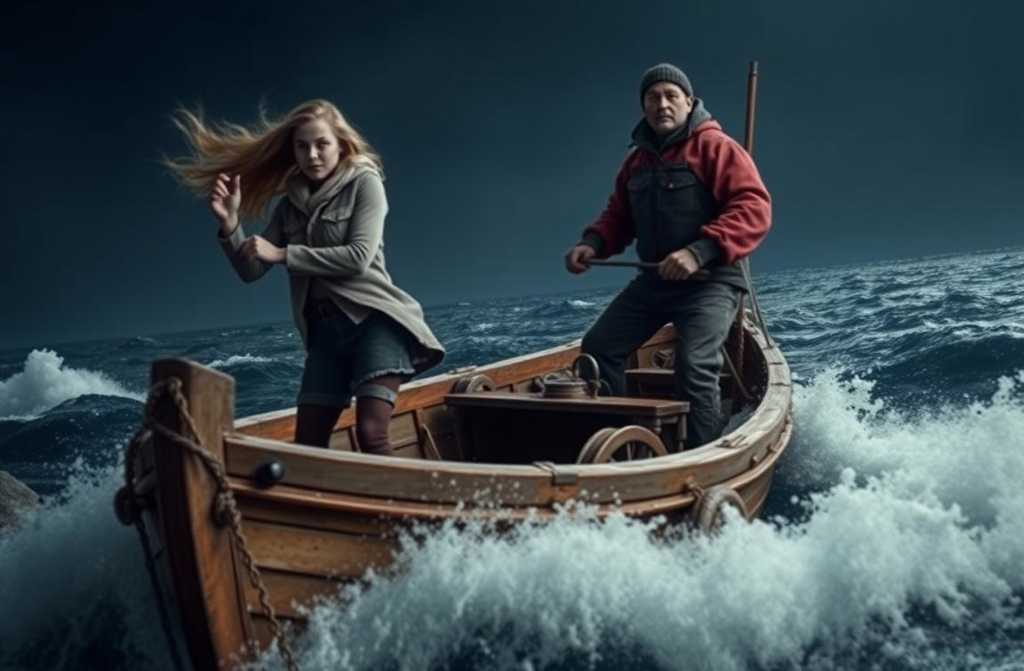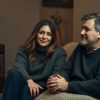The child was left on our doorstep with a note: “Do not seek us. She is in danger.” On the day she came of age, I finally understood who we had been hiding from all those years.
The storm that night roared like a wounded beast. The wind tore slates from rooftops, and salty spray reached our porch, though we lived a good hundred yards from the shore. My husband, Thomas, a fisherman, and I sat by the hearth, listening to the wind howl and thanking fate for the warmth and sturdy walls around us.
Then came a knock at the doorsoft, almost pleading, as if someone fought the storm with their last strength.
No one stood on the threshold. Only a large wicker basket wrapped in a sodden blanket. Inside, nestled in warm swaddling, lay a sleeping infant. A tiny face, fair wisps of hair, and steady breaths. Beside her, a scrap of paper bore hastily scribbled words: “Do not seek us. She is in danger.”
We carried the basket inside. While Thomas stoked the fire, I carefully lifted the child into my arms. She smelled of milk and something faintly floralnothing like the sea.
In our quiet cottage, where the only sounds had been the creak of floorboards and the purring of our tabby cat, a new universe had suddenly taken root.
We named her Evelynafter the sea that had brought her to us.
Years passed like gulls skimming waves. Our village lived by its slow rhythm: men to the sea, women to their chores, mending nets and waiting. Evelyn grew, filling our home with light. She was our sunshine, our private miracle. Her laughter rang brighter than any church bell, and her endless “whys?” made Thomas and me rediscover the world.
I taught her to name the herbs in our garden, to tell edible mushrooms from poisonous. We baked bread together, and she, dusted in flour, shaped little buns with solemn concentration. Thomas, returning with his catch, always looked for her first, her golden head bobbing as she ran to meet him. He taught her to read the stars, to predict the weather by the sunsets hue, to tie sailors knots. Evenings, we sat on the porch while he spun tales of merfolk and drowned kings, and she listened, breathless, pressed against his broad chest.
Evelyn became the heart of our small family. She remembered no other life, no other parents. We were her world, and she was ours. We never told her she wasnt ours by blood. What did blood matter, when love was the measure?
Her eighteenth birthday dawned clear and warm. Neighbors came with berry pies, and Thomas gave her a silver-rimmed compass. “To always find your way home, love,” he said, his voice uncommonly tender.
That afternoon, a sleek black carunseen in our village of fishing boats and rusted Fordspulled up outside. A woman stepped out, her suit crisp, hair sharp as her gaze. She walked to our gate and asked, “Ariadne?”
We froze. Evelyn frowned, first at us, then at the stranger. I stepped forward. “Youre mistaken. Her name is Evelyn.”
The woman smiled gently. “No mistake. Ive waited eighteen years for this day. May I come in?”
Her name was Helen, and she had been the right hand of Evelyns true mother. Our girls birth name was Ariadne, and her mother, Catherine, was no ordinary womanshe led a vast empire. Brilliant, ruthless, she had made fortunes and deadly enemies. When Ariadne was born, threats turned real.
Catherine understood she couldnt protect her daughter by staying close. So she staged the childs kidnapping and disappearance, then sent her hereto our quiet corner of the world.
All these years, while our Evelyn-Ariadne grew in love and simplicity, her true mother had waged war. Enemy by enemy, she dismantled their power until the world was safe again.
Helen showed us a photograph. A striking woman with weary, loving eyes gazed from the screenand in her smile, in the arch of her brows, we saw our Evelyn.
That night, another call came. Catherines face appeared, tears streaming as she looked upon her grown daughter. She thanked us, voice breaking. Evelyn watched, then took our calloused hands. “Mum, Dad Im here. Im home.”
In that moment, we all understood: this girl now had two families. One had given her life; the other, a childhood drenched in sun and salt wind. And that was her greatest fortune.
The days after were strange, thick with fog between past and future. Helen stayed in the village, a silent sentinel. Each evening, Evelyn spoke with Catherine through a secure line, learning of stars not in our sky but in galaxies her mothers labs studied, of cities where skyscrapers brushed clouds.
Thomas once sighed, flipping through a lavish art book Catherine had sent. “We taught her to survive the sea. That woman will teach her to sail oceans.”
Then came the danger. Strangers asked about a fair-haired girl in nearby towns. Helens smile vanished. One evening, Evelyn emerged resolute. “I must go. Im putting you at risk.”
We let her.
Under cover of darkness, Thomas took her by boat to meet Catherines vessel. A chase eruptedenemies in a speedboat, our old fishing skiff dodging rocks and nets. Evelyn, once the girl of mermaid tales, navigated like a seasoned captain. “Left, Dad! Shoals there!”
They escaped.
A year later, the black car returned. Catherine stepped out, elegant yet weary, followed by Evelynno, Ariadne now. She smelled of the sea and new perfume. That night, Catherine sat on our wooden bench, drinking mint tea, speaking of pride. Ariadne studied oceanography and law, blending both worlds.
Before leaving, she showed me the compass. “It always leads me home,” she whispered. “I have two now. And I love them both.”
She left, but we knew shed return. Our girl had woven two worlds together with loves thread. And her light warmed not just our little cottage by the shore, but the vast, once-hostile world now made safe.







